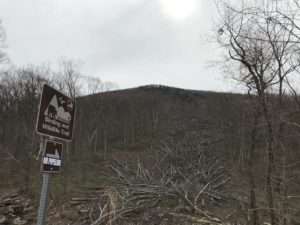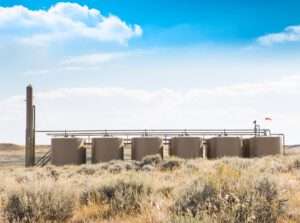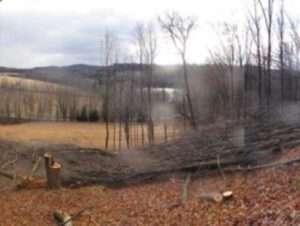Jonathan Mingle
Lincoln, VT
- 2020

Fellowship Title:
- The Future of Natural Gas
Fellowship Year:
- 2020

New Dominion
How a grassroots groundswell, legal challenges and political and technological sea changes combined to force Virginia’s most powerful company to abandon the Atlantic Coast Pipeline, pivot from natural gas and onto a cleaner energy path. “Hung up in the mountains” Tom Hadwin took a sip of water and looked out at his audience, arrayed in folding camp chairs in the middle of a leafy grove at the foot of the Blue Ridge Mountains, waiting for him to continue his multi-part indictment of the Atlantic Coast Pipeline. Tom Hadwin (left, with sleeves rolled up) talks with fellow presenters before the start of the Friends of Nelson workshop on April 13, 2019. The assembled activists were mostly retirement-age, like him, with a couple dozen millennials among them. Many sported blue t-shirts with “NO PIPELINE” emblazoned on the front. Nearby, under tarps strung up for shade, a table was strewn with fact sheets tallying the economic and climate damage that would be wrought by the pipeline, if it were ever built. A banner flapped from a plywood shelter.

Is Natural Gas a Fossil Fuel with a Great Future Behind It?
As the pandemic sends shock waves through the energy industry, investors are rethinking their bets on America’s decade-long natural gas boom. On June 28th, Chesapeake Energy filed for Chapter 11 bankruptcy. It was a long-expected announcement. The hydraulic fracturing pioneer – launched by a young Oklahoma wildcatter named Aubrey McClendon and a friend with a $50,000 investment in 1989, and at its peak in 2008 the second biggest producer of natural gas in the U.S. – had limped along under the weight of billions in debt for years. The unprecedented plunge in demand for oil and natural gas wrought by the Covid-19 pandemic just gave Chesapeake the finishing blow. A turbulent and hugely consequential chapter in the history of American energy ended with it. As an energy analyst at the consultancy Woods Mackenzie observed the day after Chesapeake’s announcement, “The ‘growth at all costs’ model is now out the window.” Over the past 15 years, Chesapeake and its many competitors in shale formations like Appalachia’s Marcellus and Texas’ Eagle Ford and Permian Basins used hydraulic

The Limits of Disturbance
With its permitting authority over natural gas infrastructure, the little-known Federal Energy Regulatory Commission has sweeping power over individual citizens’ property and our collective climate trajectory. Critics say that reforming its pipeline review process should be high on President Joe Biden’s agenda.
